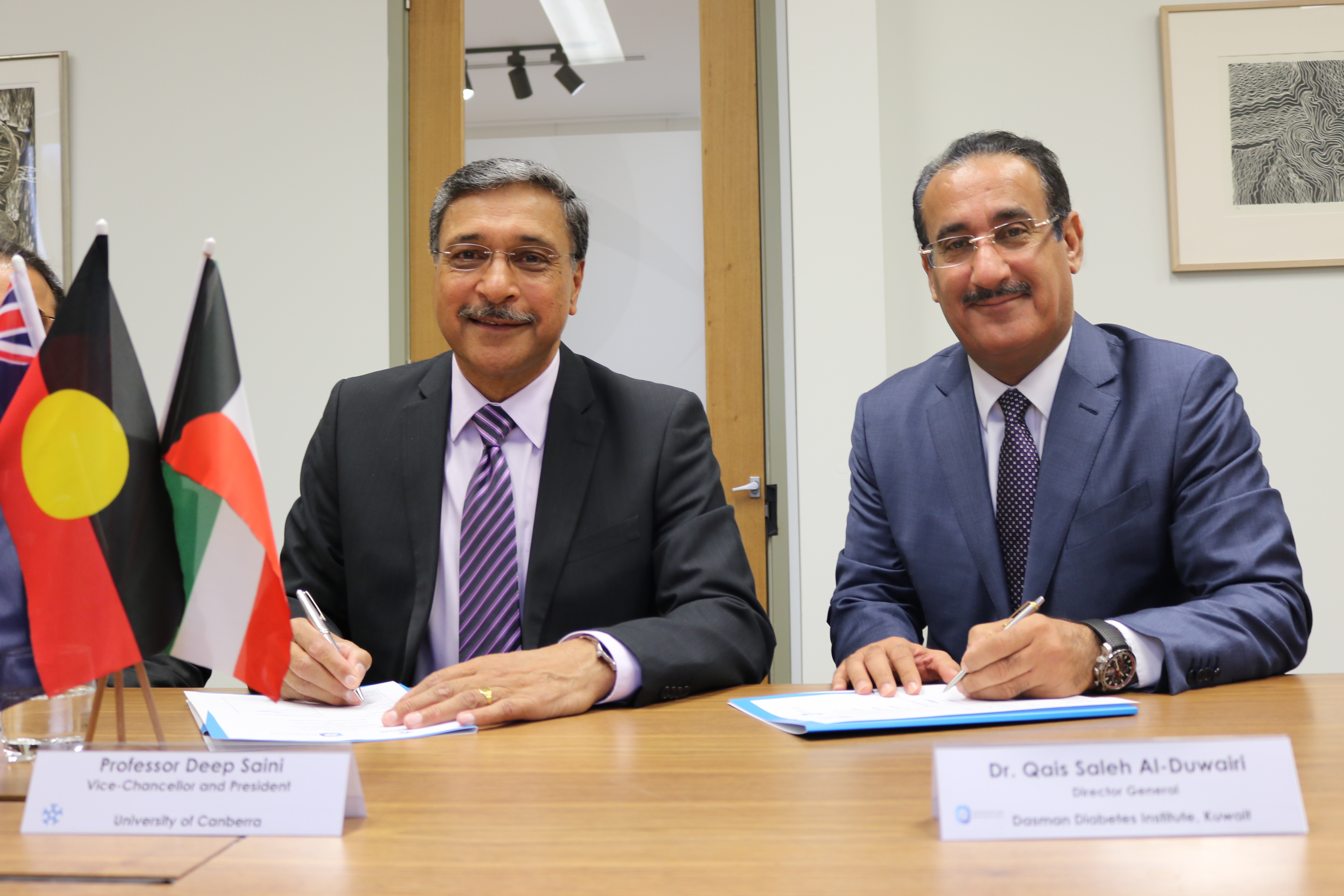Marcus Butler
6 September 2017: Mapping the impact of diabetes in the state of Kuwait will be the main focus of a new partnership between the University of Canberra and Kuwait’s Dasman Diabetes Institute (DDI).
Type 2 diabetes poses a serious problem in Arab countries and experts are increasingly looking to spatial epidemiology to uncover more information about the disease.
University of Canberra’s Health Research Institute Associate Professor Neil Coffee said spatial epidemiology looks at disease in terms of geographic variables, like environment, behaviour, socioeconomic and other place-related risk factors.
“The new agreement between the University of Canberra and the Dasman Diabetes Institute will look at four areas: build capacity for spatial epidemiology in Kuwait; develop geographic information systems to drive research; training and education; and student/academic exchange,” Dr Coffee said.
“Our expertise will help our Kuwaiti partners build capacity in geospatial data and spatial-epidemiology, linking health outcomes to the places where people live, where prevention efforts can then be targeted.”
The Memorandum of Understanding (MoU) between both organisations also outlines collaboration in training and educating researchers in Kuwait.
University of Canberra Vice-Chancellor and President Professor Deep Saini and DDI’s Director General Dr Qais Saleh AL-Duwairi signed the agreement in Canberra today.
They were joined by His Excellency, Najeeb AL-Bader the Ambassador of the State of Kuwait, who confirmed that the MoU will contribute to strengthening the health cooperation frameworks between Kuwait and Australia. The signing was also attended by Dr. Faisal Al-Refaei, DDI’s Chief Operating Officer.
The agreement will also create opportunities for exchange students and staff from DDI and the University to spend time studying and researching in each other’s countries to grow the expertise in spatial epidemiology.
Dr Coffee said a new research collaboration on diabetes led by DDI’s Dr Saad Alsharrah and University of Canberra Professor of Epidemiology Mark Daniel is already under way.
“This pilot is beginning to geocode diabetes patients in Kuwait and soon will produce map visualisations of patients and their social demographics,” Dr Coffee said.
“Geo-health as a field of research and a spatial way of understanding the health problems in communities is really catching on around the world. Australia is growing its strength in this space and further partnerships like this will go far to show how spatial epidemiology can be used to deliver better health policies and results.”
“We are very excited to engage in further work with our Kuwaiti partners at the DDI and to grow the collaboration in years to come,” Dr Coffee said.




